Other Publications
Publications are usually produced in the official working languages of the IOPC Funds, namely English, French and Spanish. However, from time to time the Secretariat collaborates with Member States and other organisations to produce key publications in other languages. These are available below.
IOPC Funds publications in other languages
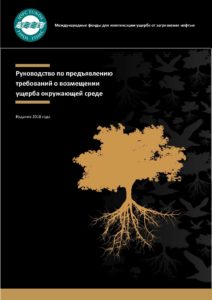
Environmental Damage Guidelines – Russian
Guidelines for presenting claims for environmental damage.
These Guidelines set out what should be done following an oil spill to present claims for environmental damage covered by the international liability and compensation regime, that is, the reimbursement of costs for post-spill studies and for reinstatement of environments damaged by oil.
This Russian version has been published in cooperation with the Oil Spill Preparedness Regional Initiative (OSPRI) and the UN Environment Programme (UNEP), and is a translation based on the official version published by the IOPC Funds.
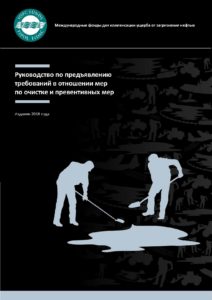
Clean up Guidelines – Russian
Guidelines for presenting claims for clean up and preventive measures.
These Guidelines have been published specifically to assist claimants who have incurred costs for clean up or preventive measures to better understand if, when, and how they can make claims for compensation. This Russian version has been published in cooperation with the Oil Spill Preparedness Regional Initiative (OSPRI) and the UN Environment Programme (UNEP), and is a translation based on the official version published by the IOPC Funds.
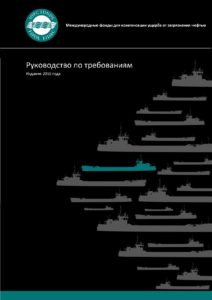
Claims Manual – Russian
The Claims Manual is a practical guide to presenting claims against the IOPC Funds. It briefly describes the Funds’ history and legal background, what types of claims are considered admissible and how to present a claim. This Russian version has been published in cooperation with the Oil Spill Preparedness Regional Initiative (OSPRI) and the UN Environment Programme (UNEP), and is a translation based on the official version published by the IOPC Funds. Only the official original text in English, French and Spanish would be taken into account by the 1992 Fund in the event of claims being submitted as a result of oil pollution damage.
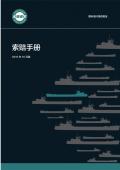
Claims Manual – Chinese
The Claims Manual is a practical guide to presenting claims against the IOPC Funds. It briefly describes the Funds’ history and legal background, what types of claims are considered admissible and how to present a claim. This Chinese version has been published in cooperation with the Chinese Ship-source Oil Pollution Compensation Fund (COPC Fund) and is a translation based on the official version published by the IOPC Funds. Only the official original text in English, French and Spanish would be taken into account by the 1992 Fund in the event of claims being submitted as a result of oil pollution damage.
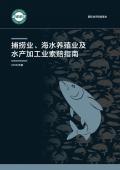
Fisheries Guidelines – Chinese
Guidelines for presenting claims in the fisheries, mariculture and fish processing sector.
These Guidelines set out what should be done following an oil spill and what sort of information is needed to make a claim for compensation, specifically to assist claimants engaged in catching, farming and processing seafood. This Chinese version has been published in cooperation with the Chinese Ship-source Oil Pollution Compensation Fund (COPC Fund) and is a translation based on the official version published by the IOPC Funds.
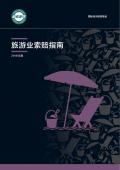
Tourism Guidelines – Chinese
Guidelines for presenting claims in the tourism sector.
These Guidelines set out what should be done following an oil spill and what sort of information is needed to make a claim for compensation, specifically to assist claimants in the tourism sector. This Chinese version has been published in cooperation with the Chinese Ship-source Oil Pollution Compensation Fund (COPC Fund) and is a translation based on the official version published by the IOPC Funds.
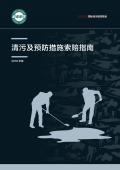
Clean up Guidelines – Chinese
Guidelines for presenting claims for clean up and preventive measures.
These Guidelines have been published specifically to assist claimants who have incurred costs for clean up or preventive measures to better understand if, when, and how they can make claims for compensation. This Chinese version has been published in cooperation with the Chinese Ship-source Oil Pollution Compensation Fund (COPC Fund) and is a translation based on the official version published by the IOPC Funds.
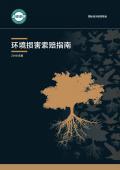
Environmental Damage Guidelines – Chinese
Guidelines for presenting claims for environmental damage.
These Guidelines set out what should be done following an oil spill to present claims for environmental damage covered by the international liability and compensation regime, that is, the reimbursement of costs for post-spill studies and for reinstatement of environments damaged by oil. This Chinese version has been published in cooperation with the Chinese Ship-source Oil Pollution Compensation Fund (COPC Fund) and is a translation based on the official version published by the IOPC Funds.
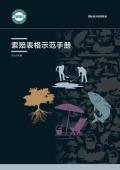
Example Claim Form – Chinese
This is an example claim form for reference and training purposes only. It has been designed to give an indication of the type of information which would be required to substantiate a claim and includes specific sections for different types of claims. In the event of an incident, the process for claim submission will be explained and specific customised claim forms and facilities will normally be made available by the 1992 Fund via this website. This Chinese version has been published in cooperation with the Chinese Ship-source Oil Pollution Compensation Fund (COPC Fund) and is a translation based on the official version published by the IOPC Funds.
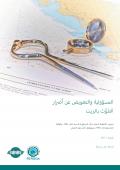
Text of Conventions — Arabic
This booklet contains the texts of the 1992 Civil Liability Convention and the 1992 Fund Convention, i.e. the consolidated texts of the 1969 Civil Liability Convention and the 1971 Fund Convention as amended by the 1992 Protocols, together with the texts of the two Resolutions on the increase of the limits, and the text of the Supplementary Fund Protocol. This Arabic version has been published in cooperation with PERSGA and is a translation based on the official version published by the IOPC Funds. Only the official original text in English, French and Spanish would be taken into account by the 1992 Fund in the event of claims being submitted as a result of oil pollution damage.
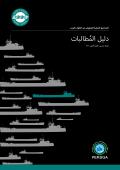
Claims Manual — Arabic
The Claims Manual is a practical guide to presenting claims against the IOPC Funds. It briefly describes the Funds’ history and legal background, what types of claims are considered admissible and how to present a claim. This Arabic version has been published in cooperation with PERSGA and is a translation based on the official version published by the IOPC Funds.. Only the official original text in English, French and Spanish would be taken into account by the 1992 Fund in the event of claims being submitted as a result of oil pollution damage.

Fisheries Guidelines — Arabic
Guidelines for presenting claims in the fisheries, mariculture and fish processing sector.
These Guidelines set out what should be done following an oil spill and what sort of information is needed to make a claim for compensation, specifically to assist claimants engaged in catching, farming and processing seafood. This Arabic version has been published in cooperation with PERSGA and is a translation based on the official version published by the IOPC Funds.
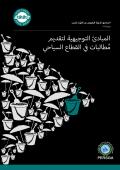
Tourism Guidelines — Arabic
Guidelines for presenting claims in the tourism sector.
These Guidelines set out what should be done following an oil spill and what sort of information is needed to make a claim for compensation, specifically to assist claimants in the tourism sector. This Arabic version has been published in cooperation with PERSGA and is a translation based on the official version published by the IOPC Funds.
Joint publications with other organisations
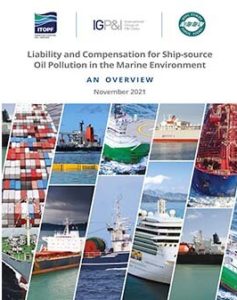
Liability and compensation for ship-source oil pollution in the marine environment
This booklet was published jointly with the International Group of P&I Associations and ITOPF, providing an overview of the various international conventions and national systems in place for compensation for ship-source oil spills.
 Our Use Of Cookies
Our Use Of Cookies